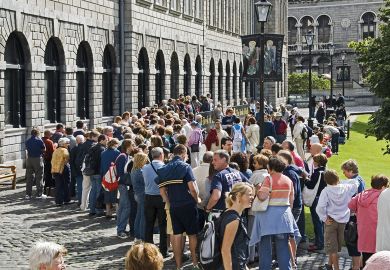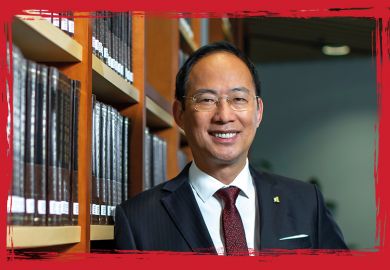View the world’s best small universities 2016 results
Many of my friends who went to a large university found themselves lost in a crowd of anonymous students, had a disappointing experience, and eventually dropped out. It seems that putting hundreds of students in the same classroom often leads to a growing lack of interest, a lack of communication with the teacher, difficulty questioning the course content, and problems engaging in debate.
This is the main reason why I chose to attend a small university: the Ecole Normale Supérieure (ENS) in Paris, France. In addition, my belief that education should not be a large-scale, industrial-like process put me off considering large universities. I am convinced that a teacher can transmit their knowledge to only a certain number of students at a time. I therefore wanted to experience small classrooms and the ability to work with the teacher.
The international recruitment process of ENS involves students from remarkably different backgrounds and ensures the selection of the most promising individuals among a broad spectrum of profiles. As a result, students attending ENS are highly motivated, which is key to the quality and efficiency of an individual’s education.
Student blog: Does size matter?
Thanks to its modest size, this university is able to offer curricula for which students can take classes in various fields while working on a degree in their major.
In my case, while majoring in atmospheric science, I learned about geopolitics, Arabic, English debating, ecology, geochemistry, pedology and more. I was around students from a huge range of fields.
The limited number of students at ENS also allows professors to conduct classes through field trips or internships – at least nine over two years in my case. This creates opportunities to meet and connect with PhD and post-doctoral students, teachers, senior officials, and leading scientists in France and abroad. By the time I graduated, I had almost a full year of scientific research experience.
This was crucial in shaping my early career, and reinforced my knowledge and self-confidence in taking initiatives, learning new tools, and working efficiently as a project team member.
Student blog: Finding my family at a small medical school
The university administrators at ENS were able to meet with the students to discuss their course curriculum, and later to substantially adapt and improve it. In contrast, the very large university that I later attended gathered student feedback using multiple choice questionnaires, allowing very little (if any) change to take place.
Being in a small university was an incentive to mingle with students from all fields, considerably broadening my curiosity and allowing me to cautiously shape my interests in atmospheric science. Taking classes with fewer than 15 classmates enabled active communication with the professors.
This undoubtedly developed my abilities to question and discuss new information. Overall, the small university I attended propelled me closer to achieving my long-term goals and gave me incredible opportunities to connect with leading scientists and institutions in my field.
Louis Rivoire studied at Ecole Normale Supérieure. Share your experiences of small institutions on social media with the hashtag #tinyversity.
Read more on this topic: Why small is beautiful in higher education




